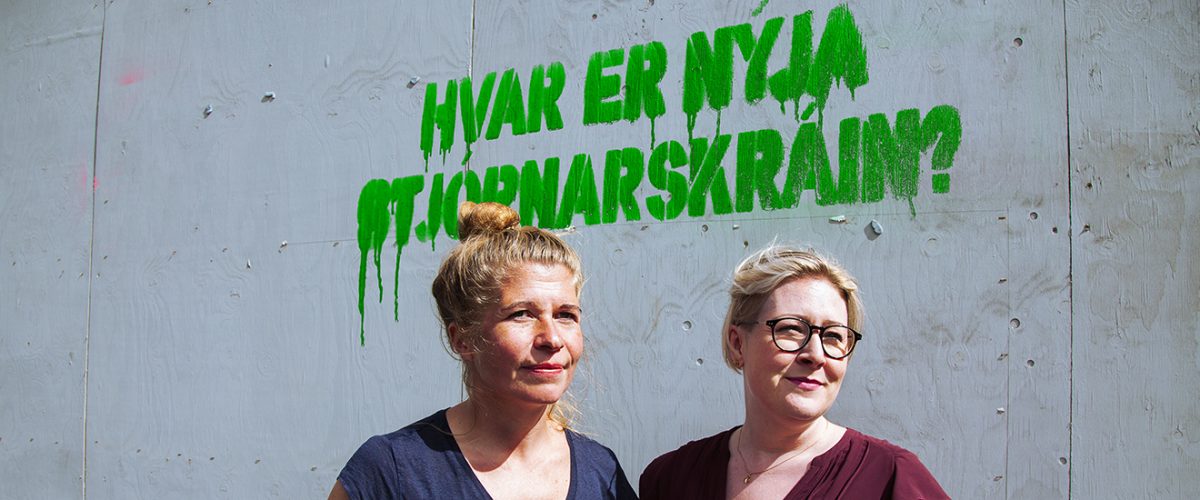Translated by: Melkorka Edda Sigurgrímsdóttir
Dear friends,
Perhaps no other words have been more influential in the fight for queer rights than the words “human rights”. In their most stripped-down meaning, these words denote specific rights that an individual possesses, based on the fact that they are a human being. Throughout history we have seen time and time again the dehumanization of queer individuals. We are labelled as the “others”, those who you must fear, mock and condemn. Little by little, victories have been won and Iceland is among the places where brave souls have waged a battle that changed the perception of the whole nation. Almost.
The fight for human rights is a fight for all individuals to be considered equal, no matter their diversity, and to live with human dignity. This battle must be fought on many battlegrounds. Iceland’s constitution plays a vital role as it comprises the foundational laws upon which other laws are based. If congress passes laws that are not in accordance with the constitution, the courts can dismiss those laws. The constitution is the trump card in the deck. It is precisely because of this that we speak of human rights in the constitution, because they matter more than other rules and other laws.
We live in precarious times where individuals who are driven by hate have risen to power by fueling the fear of the “other.” Throughout the world we’ve seen giant steps backwards in regards to human rights protections for women, queers and other marginalized groups.
Even though the situation in Iceland is good in many ways, we are still not all sitting at the same table. Even though the situation in Iceland is good in many ways, not everyone enjoys equality. For example intresex and trans people and those who experience multiple discrimination because they belong to one or more marginalized groups.
Following the economic crash in 2008, Iceland embarked upon a lovely process of rewriting the constitution. This started with a 950-person national convention in Laugardalshöll where people of all ages, genders and from all over the country met for an entire day to discuss the values that would be the framework for the new constitution. The process was transparent, open to the public, and ordinary citizens were able to participate. A final national election took place concerning the new constitution in 2012 where two thirds of the participants voted in favor of the new constitution.
Congress has not yet ratified the wishes of the voters in this matter which is very serious, as the new constitution deals with issues including human rights and the right for all to finally sit at the same table.
The proposed new constitution, created by a diverse group of Icelanders and put together as ground rules for those in power and our foundational laws, emphasizes many things including the protection of nature; human rights; and the dissipation of power. Our laws state that it is forbidden to discriminate based on sexuality or disability, yet these are not present in the existing constitution’s non-discrimination law. It is also mentioned that everyone should have the right to live with human dignity and that the diversity of human life shall always be respected. In addition, violence is mentioned with the words: “Everyone shall be guaranteed protection against violence of any kind, such as sexual violence, inside and outside the home.” The old Danish constitution that we are still governed by includes none of these important elements of protection of our natural resources, human rights and dissipation of power.
We can no longer get away with allowing our own self-interests to take precedence over the interests of the whole. The fight for human rights will be quite useless if we do not include the protection of nature and the environment so that future generations’ rights and resources are secure. This is why the new constitution stipulates that natural resources are the common and perpetual property of the nation, their use is protected and guided by sustainable development and the public interest, and asks that a price be paid for their use.
We need a new constitution, so we will use its opening words to be our last words.
“We, the people of Iceland, wish to create a just society with equal opportunities for everyone. Our different origins enrich the whole, and together we are responsible for the heritage of the generations, the land and history, nature, language and culture.
Iceland is a free and sovereign state, resting on the cornerstones of freedom, equality, democracy and human rights.
The government shall work for the welfare of the inhabitants of the country, strengthen their culture and respect the diversity of human life, the land and the biosphere.
We wish to promote peace, security, well-being and happiness among ourselves and future generations. We resolve to work with other nations in the interests of peace and respect for the Earth and all Mankind.
In this light we are adopting a new Constitution, the supreme law of the land, to be observed by all.”
Katrín Oddsdóttir human rights lawyer
Helga Baldvins Bjargardóttir, legal counsellor at Samtökin ’78
